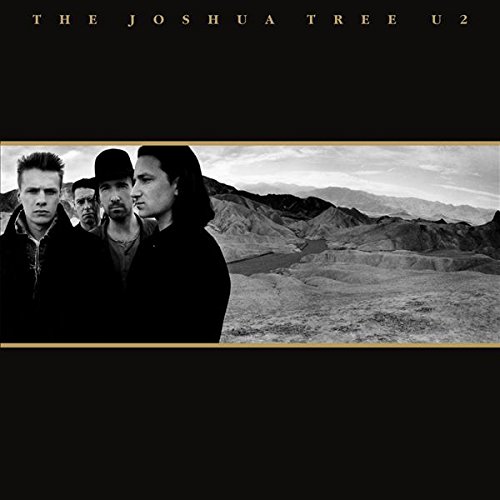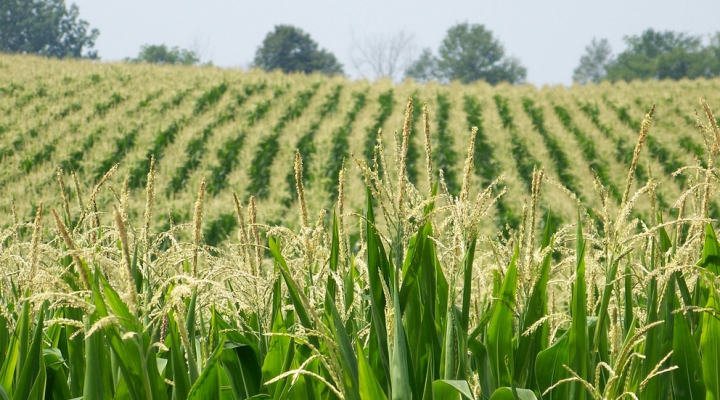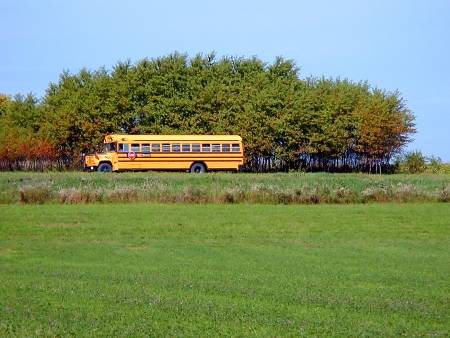My experience with music was a mixed bag as a child. In the years after my parents divorced when I was three, my mom began listening to more country music, which in the 80s was becoming aggressively hokey and pop-oriented, and I heard a lot of it on the car radio driving around. Despite this, I was able to sneak in some time watching MTV after elementary and I became enamored with videos by the likes of Joe Jackson, Cyndi Lauper, The Cars, The Cure, Dire Straights, Men at Work, and others, but as things began shifting more toward metal and hip-hop as the 90s neared, my access to MTV grew increasingly restricted. Like Sting once sang, I wanted my MTV, but no dice.
So for a while it was just oldies and country on the radio, or the Tom Petty cassettes my father sent with a Walkman as a gift one birthday. Those cassettes definitely saw me through this drought, but as school began on the cusp of 4th grade, the autumn of 1990, I had received a new little spindle of tape and sound. As I passed the last tall row of pine trees on my way to the bus stop at the entrance of Cedar Acres Trailer Park, I slipped the new cassette into my Walkman. My father’s handwriting read “U2 – Joshua Tree” on the sleeve inside the blocky, plastic cassette case and I kept it in my pocket so I could learn the names of each song. This became my morning ritual all autumn long.
Where the Streets Have No Name
The bus stop was just a little worn patch of grass and dirt where the trailer park entrance met Krouner Road. But there was no sign for the road leading into the park, where other nameless streets peeled away into small segregated neighborhoods of trailers. A corn field across the road stretched to the far treeline, often patchy with fog and mist. When the bus arrived I climbed on and searched out a seat alone. A window seat was a huge preference. The view allowed some escape, some time to be alone. I’d settle in to stare across at the fading mist that snaked through the emerald cornstalks and the pine boughs far beyond.
Jangling guitars rose in my black foam earphones. The repeating bass and ratcheting drums came in as we began sailing down the road with dips and hills like waves, the corn reaching upward as the words, “I wanna feel sunlight on my face, see the dust clouds disappear without a trace,” and I’d think of my father and the massive weight of the yellow Texas sun where he lived, how it felt on my face and shoulders and neck after he’d hug me after 10 months of separation and we’d walk to his car from the train station or the airport. We only got to see him in the summertime, if we were lucky, and the music he sent in between always made me think of him.
I Sill Haven’t Found What I’m Looking For
I missed him most in early fall, not long after my sister and I would come back from visiting him down south. He’d infuse each day of our summer visits with some new discovery, some new song or restaurant or video game or mini-golf course or television show. We watched TV late at night, no bedtime for us, and even saw Saturday Night Live just as it started to become good again. We ate tacos on the way to the beach, went to any movie we wanted, and played his cassettes and records on his big stereo system and asked, “Who is this? Who is this? And what about this?” We were so damn lucky.
U2’s Joshua Tree was new to me that fall, despite the album hitting a couple years prior. I turned it up as our bus passed the summer camp, a walkable distance from home, but none of us went there. It was a camp for city kids, all the freshly painted white barracks and lodges gleaming in the autumn morning sunlight, the tennis courts, basketball nets, soccer fields, mess hall, a miniature amphitheater for plays and presentations. It wasn’t for us. Kids from my trailer park had our own summers running unattended through woods and corn fields, down no-name streets and bike trails. Or, if your father worked two jobs all year like ours, on weekends and holidays too, you got plane tickets to fly 2,000 miles away to have everything handed to you with adoration. We took that for granted sometimes, especially early on when we would question our mother why we didn’t get that kind of treatment all year. Like I said, we were just kids who weren’t always aware of how life and money works, but we gradually understood that we were poor kids who were getting treated to something special, that this wasn’t the norm, but some summers it felt like it would never end, so we held on and pretended like it never would.
With or Without You
Sometimes my sister sat with me on the bus and sometimes she didn’t. She had her own friends, being younger by three years and separated by two grades, but I didn’t have many friends so I was always happy when we ended up together. I felt that much more anchored in who I was and where I came from, even in where I was headed. I knew whether she or I liked it or not, we’d be going there together. Despite usual sibling skirmishes, we got along well and I was happy to find myself beside her on the bus. Mostly because she’d leave me alone if I wanted the time. And I needed the time a lot.
Countryside views rolled by and we’d slow at this house or that one. We always waited extra long at one house for this catholic school kid we picked up and dropped off at a different school. She ran out in her plaid skirt, backpack swinging on her back, hair in the wind, a happy stoic kid who always sat up front. It was the only time I ever saw her in my whole life, running to or away from that bus. Never again, never since. I sometimes listen to “With or Without You” now and think of her, wonder if that little girl is still there waiting for bus #24 to drive up, because it always peaked right as we were waiting for her to run out.
Bullet the Blue Sky
Later we’d pass the cluster of houses along Nassau Lake. Since so many homes were so close together right on the water’s edge like that, with so many kids waiting to get on the bus, it felt as if they should have their own town, their own name, something different from Nassau proper, and that they should have a shop where kids could buy soda and comics and candy in the summer, and their parents could buy beer and smokes and cereal, etc. They’d all play by the lake and the town would be called Blue Sky maybe, the clouds and sun reflecting right off the water. Only later as an adult did I learn that Nassau Lake was contaminated, gutted of fish, devoid of drinkable water, and kind of a grimy place. No wonder no shop opened up. No wonder the area hadn’t grown. No wonder my daydreams were just that. It was only a tiny crossroads in the middle of tainted Americana.
Running to Stand Still
I met my best friend in fourth grade, and I only got to see him at school during this period. He was from Texas too and my dad lived just a few miles from where his dad lived so the school counselor introduced us and asked me to show Jesse around. Whoever that counselor was, bless her. I didn’t have many friends, just my sister, my Walkman, my books, and my parents, but Jesse made going to school much more tolerable. I sometimes listened to my cassettes on the bus and wondered about what his life was like before, where he came from, if we’d passed each other on summer visits and never knew it, but by the time we got to school I didn’t bother asking him those things. There was so much more to laugh about. But on those rides, the music helped me think about all those things, and more. Something about the music and that U2 cassette made me feel far away, a personal and quiet place, a place for me to go alone, a stillness among the chaos of growing up.
Red Hill Mining Town
Our route to school passed through a few different small hamlets and villages before we got to East Greenbush, which always felt like such a big town when I was little. Each village along the way had its own curious-looking shops and storefronts that made me think, “These places are special. These places are where we go when we need things and they’ll always be there.” When I was older I’d think how sad those shops looked, small and hardly used, how dilapidated they felt through the eyes of an older child, of an adult. Some are still there, eking out an existence, like the greasy-spoon diner standing between the little car dealerships along Route 9 & 20. Some are different, like the Hess station that became the Exxon that became the Speedway. Some are still standing but long closed, like Miller’s Auto shop, a tiny thing that always looked like someone might show up and dust off the windows and keep working on cars, but they decided not to for a couple decades. It has been that way ever since. Each of those storefront felt like a part of me. I know which one of them I feel like right now—a changed façade over the same old shell—and I worry about which one I will become—a small town fate for every kid from my side of the highway.
In God’s Country
The elementary school where I met Jesse was a wonder. Art, books, music, perhaps the most beloved gym teacher in the region who once conjured a fake treasure hunt to chase after a runaway gingerbread man who left behind clues and photos and gifts along the way. We knew it was for fun, but we believed, because this was a place where maybe things could be a little brighter, a little more joyful, if we just bought in, if we had faith in ourselves.
Sure, we had homework too, and boring classes, but there were Halloween parades and tug-o-war on field days, and Green Meadow Elementary School had a playground to rival most any other, a totally majestic thing. The one summer our father drove north to spend two weeks with us, we played with him there almost every day. It had bridges and towers and swings and slides and monster truck tires and everywhere murals of monsters and space ships and knights and sea creatures. It was magical. It was heaven.
We would pull down the little country lane into the parking lot just as the song In God’s Country would end and the next track would begin and I’d click the Walkman off and start the day. There were possibilities in the air, potential and hope. I’m glad my sister was there with me. I’m glad my father got to see that place, that my mother helped build that playground, and that my grandparents came to visit during special events. If I didn’t always feel like my neighborhood was a place where I could fit in, I knew this place was where I could find a way to do so, eventually. It was a gateway to more interesting and adventurous places. The library full of books, the field trips out to museums and factories, the hints and promises that music and art class offered about what might lie ahead in other grades, other schools, other lives. If there’s a heaven, I hope it’s something like that elementary school, taking every grade all over again, and again, and again, like a spinning wheel inside a plastic cassette, safe and sound in my pocket until that long ride home.
And that album always takes me back there. As my musical tastes change, there are a handful of albums that remain bedrocked in my memory, and for that I’ll always be thankful.




